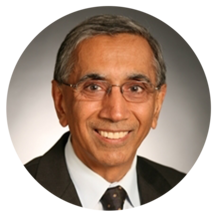About this Presentation
Simplified drum buffer rope (SDBR) is now the official choice of Goldratt Consulting to manage production. We highlight the rational of choosing SDBR over DBR. Some new concepts have been added in the last 6-7 years to the SDBR approach: 1. The planned load: the total load on the weakest link. 2. A unique approach to managing make-to-stock environments has been developed that does not use time buffers, but instead uses one stock buffer. The planned load concept enables SDBR to manage production even when a capacity constraint resource (CCR) is truly active. The approach to make-to-stock also supports the idea of refraining from detailed scheduling of the CCR. Lately some critical additions to the above approach were made. The need to support rapid response orders and at the same time, ensure perfect delivery of existing orders in standard times has led to the development of an algorithm to ensure safe time quotations to customers, which is based on the planned load. However, in a rapid response situation we don't always know how much capacity is required when a regular order shows up, because rapid response orders might follow and consume the available capacity. A mechanism for capacity reservation is suggested. All the above new developments are now translated into software. The authors conclude the presentation by briefly demonstrating the new features of the software, with special emphasis on the planned load concept and how management should use it. The visuals of the software provide a summary of the theoretical approach and show the links to reality. The capacity reservation allocation and management is the core of the discussion. A full paper on the use of SDBR in rapid response implementation is attached. Benefits include: 1. More able to decide between implementation of SDBR or traditional DBR; 2. Understand the concept of the planned load and its practical ramifications. 3. Understand the capacity reservation needs and dilemmas.
What Will You Learn
To help you get the most value from this session, we’ve highlighted a few key points. These takeaways capture the main ideas and practical insights from the presentation, making it easier for you to review, reflect, and apply what you’ve learned.

The speaker emphasizes the importance of dialogue and disagreement within the TOC community, warning against the dangers of it being perceived as a cult.
The concept of capacity constraints in production planning is discussed, with the speaker stressing the importance of not wasting capacity and exploiting it effectively.
The speaker introduces the concept of Simplified Drum-Buffer-Rope (sDBR), highlighting its benefits in terms of simplicity and flexibility, and its ability to better manage capacity constraints and market demand.
Instructor(s)
Eli Schragenheim

Ms Alka Wadhwa
Alka Wadhwa is an experienced consultant and process improvement expert with over 24 years of expertise in the Theory of Constraints (TOC), Lean Six Sigma, and organizational performance optimization. She has successfully led projects in healthcare, financial services, and manufacturing, driving significant improvements such as a 67% boost in hospital operations and a 140% increase in outpatient visits.
Previously, Alka Wadhwa spent 17+ years at GE Global Research Center, where she led initiatives to enhance various GE businesses through advanced technologies, process redesign, and system optimization. Founder of Better Solutions Consulting, LLC, she specializes in using TOC, Six Sigma, and data analytics to streamline operations and build high-performance teams.
Her work has earned her multiple accolades, including the Empire State Award of Excellence in healthcare.

Dr Gary Wadhwa
Dr. Gary Wadhwa is a Board Certified Oral & Maxillofacial Surgeon with extensive experience in the field. He completed his Oral & Maxillofacial Surgery training at Montefiore Hospital, Albert Einstein College of Medicine in Bronx, NY, and has served as an Attending at prestigious institutions like St. Peters Hospitals, Ellis Hospital, and Beth Israel Hospital in NY. With a career spanning over two decades, he was the former CEO and President of a group specialty practice in NY from 1994 to 2015. Dr. Wadhwa holds an MBA from UT at Knoxville, TN, and has undergone additional training in System Dynamics at MIT, Health System Management at Harvard Business School, and Entrepreneurship and healthcare innovations at Columbia Business School. Committed to expanding access to Oral & Maxillofacial Surgery care, he is currently engaged in a meaningful project to provide healthcare services to underserved populations in inner city and rural areas through non-profit Community Health Centers.
